Impact of Alcohol and Caffeine
Examining How Alcohol and Caffeine Consumption Affect the Development of Vaper's Tongue

For many vapers, one of the most frustrating experiences is losing the ability to taste the flavourful e-liquids that initially converted them from traditional cigarettes. This condition, known as vaper's tongue or vaper's fatigue, can strike suddenly and persistently rob vapers of the enjoyment they once derived from vaping. While the exact causes of vaper's tongue remain somewhat elusive, recent research has suggested that certain lifestyle factors, such as alcohol and caffeine consumption, may play a role in its development.
Understanding Vaper's Tongue
Vaper's tongue, also referred to as olfactory fatigue, is a temporary condition that impairs a vaper's ability to taste the flavours in their e-liquids. This phenomenon is not unique to vaping, as it can also affect those who consume flavoured foods or beverages regularly. The underlying mechanism behind vaper's tongue is believed to be a desensitisation of the taste buds and olfactory receptors responsible for detecting flavours.
When exposed to the same flavour compounds repeatedly, the taste buds and olfactory receptors can become overwhelmed and temporarily lose their sensitivity. This desensitisation can lead to a dulling or complete loss of flavour perception, leaving vapers with an unsatisfying and often frustrating vaping experience.
The Impact of Alcohol Consumption
Alcohol consumption has long been associated with impaired taste and smell perception, and its potential impact on vaper's tongue is worth exploring. When alcohol enters the bloodstream, it can have a direct effect on the olfactory system, which is responsible for detecting and interpreting aromas and flavours.
Alcohol can temporarily deaden the olfactory receptors, reducing their sensitivity to odours and flavours. This effect is often experienced as a dulling of taste and smell during and after alcohol consumption. For vapers, this temporary olfactory impairment can contribute to the development of vaper's tongue, as the ability to perceive the intricate flavours in e-liquids is diminished.
Furthermore, alcohol can have a dehydrating effect on the body, which can impact the function of taste buds. Taste buds require a certain level of hydration to function properly, and prolonged dehydration can lead to a decrease in their sensitivity. This dehydration, coupled with the direct effects of alcohol on the olfactory system, can create a perfect storm for the development of vaper's tongue.
Caffeine and Its Potential Impact
While the relationship between caffeine and vaper's tongue is not as well-documented as that of alcohol, some evidence suggests that caffeine consumption may also play a role in this condition.
Caffeine is a stimulant that can have various effects on the body, including increasing alertness, heart rate, and blood pressure. However, it can also impact taste perception by altering the function of taste buds and olfactory receptors.
Some studies have shown that caffeine consumption can temporarily diminish the perception of certain flavours, particularly bitter and sweet tastes. This effect is thought to be caused by the interaction of caffeine with the taste buds and their associated nerves, leading to a temporary desensitisation.
For vapers, this temporary desensitisation of taste buds and olfactory receptors caused by caffeine consumption could potentially contribute to the development of vaper's tongue. As the ability to perceive flavours is reduced, the enjoyment derived from vaping may diminish, leading to frustration and a desire to switch to a new e-liquid in search of a more satisfying flavour experience.

Combining Alcohol and Caffeine: A Double Whammy?
While the individual effects of alcohol and caffeine on taste perception are well-documented, the combined impact of these two substances on vaper's tongue is an area that warrants further investigation.
When consumed together, alcohol and caffeine can have a compounding effect on the body's sensory systems. Alcohol's dehydrating properties and direct impact on the olfactory system, combined with caffeine's potential to desensitise taste buds, could create a perfect storm for the development of vaper's tongue.
This combination could lead to a significant reduction in flavour perception, making it challenging for vapers to enjoy the intricate flavours of their e-liquids. Additionally, the stimulant effects of caffeine may further exacerbate the dehydrating effects of alcohol, potentially worsening the impact on taste buds and olfactory receptors.
Prevention and Management Strategies
While the impact of alcohol and caffeine consumption on vaper's tongue is a relevant concern, there are several strategies that vapers can employ to minimise the risk and manage the condition effectively.
Moderation is key when it comes to alcohol and caffeine consumption. Limiting intake of these substances, particularly in combination, can help reduce the potential for desensitisation of taste buds and olfactory receptors.
Staying well-hydrated is also crucial for maintaining optimal taste and smell perception. Drinking plenty of water, especially before and after alcohol or caffeine consumption, can help counteract the dehydrating effects and support the proper functioning of taste buds.
Additionally, taking breaks from vaping and rotating between different e-liquid flavours can help prevent olfactory fatigue and allow the taste buds and olfactory receptors to reset and regain sensitivity.
If vaper's tongue does occur, vapers can try various remedies to alleviate the condition, such as:
- Drinking unsweetened tart juices, like lemon or lime, to help "reset" the taste buds.
- Practising good oral hygiene, including brushing the tongue, to remove any built-up residue that may be contributing to flavour fatigue.
- Trying menthol or cooling e-liquids, which can provide a different sensation and potentially kick-start the olfactory receptors.
- Taking a break from vaping for a few days to allow the taste buds and olfactory receptors to recover.

Conclusion
While the exact causes of vaper's tongue are still being explored, the potential impact of alcohol and caffeine consumption on this condition cannot be ignored. Both substances have been shown to temporarily desensitise taste buds and olfactory receptors, potentially contributing to the development of vaper's tongue.
By understanding these effects and practising moderation in alcohol and caffeine consumption, vapers can take proactive steps to minimise the risk of experiencing this frustrating condition. Additionally, implementing preventive measures and management strategies can help alleviate vaper's tongue when it does occur, ensuring a more enjoyable and satisfying vaping experience.
As research continues to unravel the complexities of vaper's tongue, vapers can stay informed and make informed choices to maintain their ability to savour the rich flavours they have come to love.
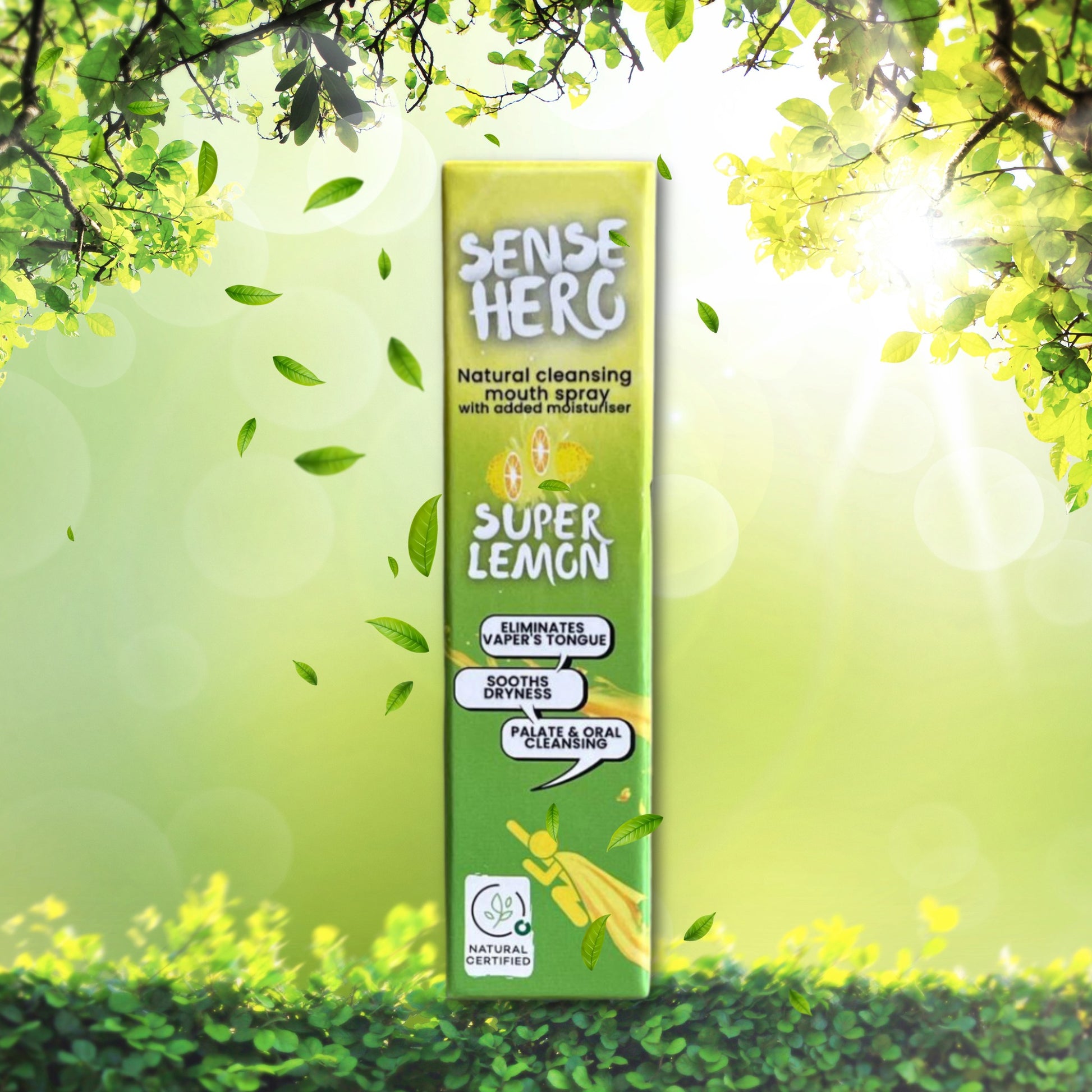
Sense Hero
Sense Hero mouth Spray UK: Quick Fix for Dryness, Vapers Tongue and Palate Cleansing
View full details

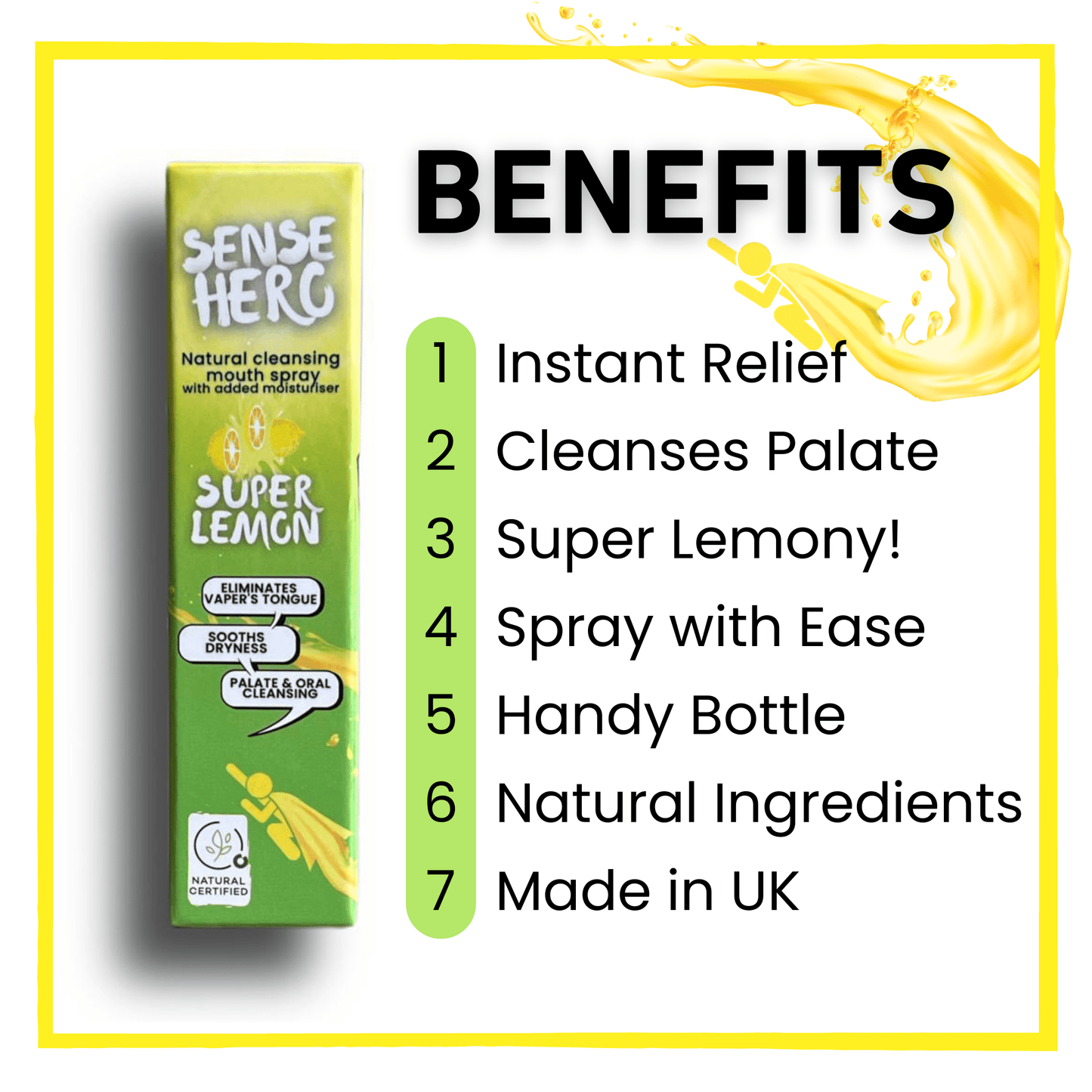
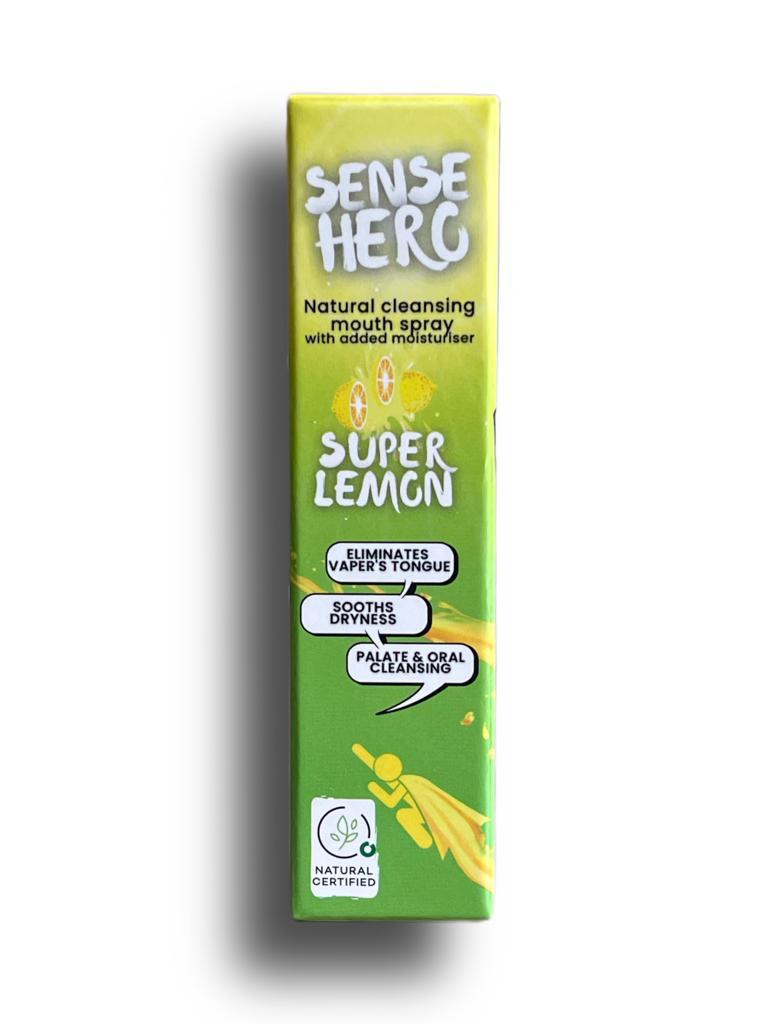
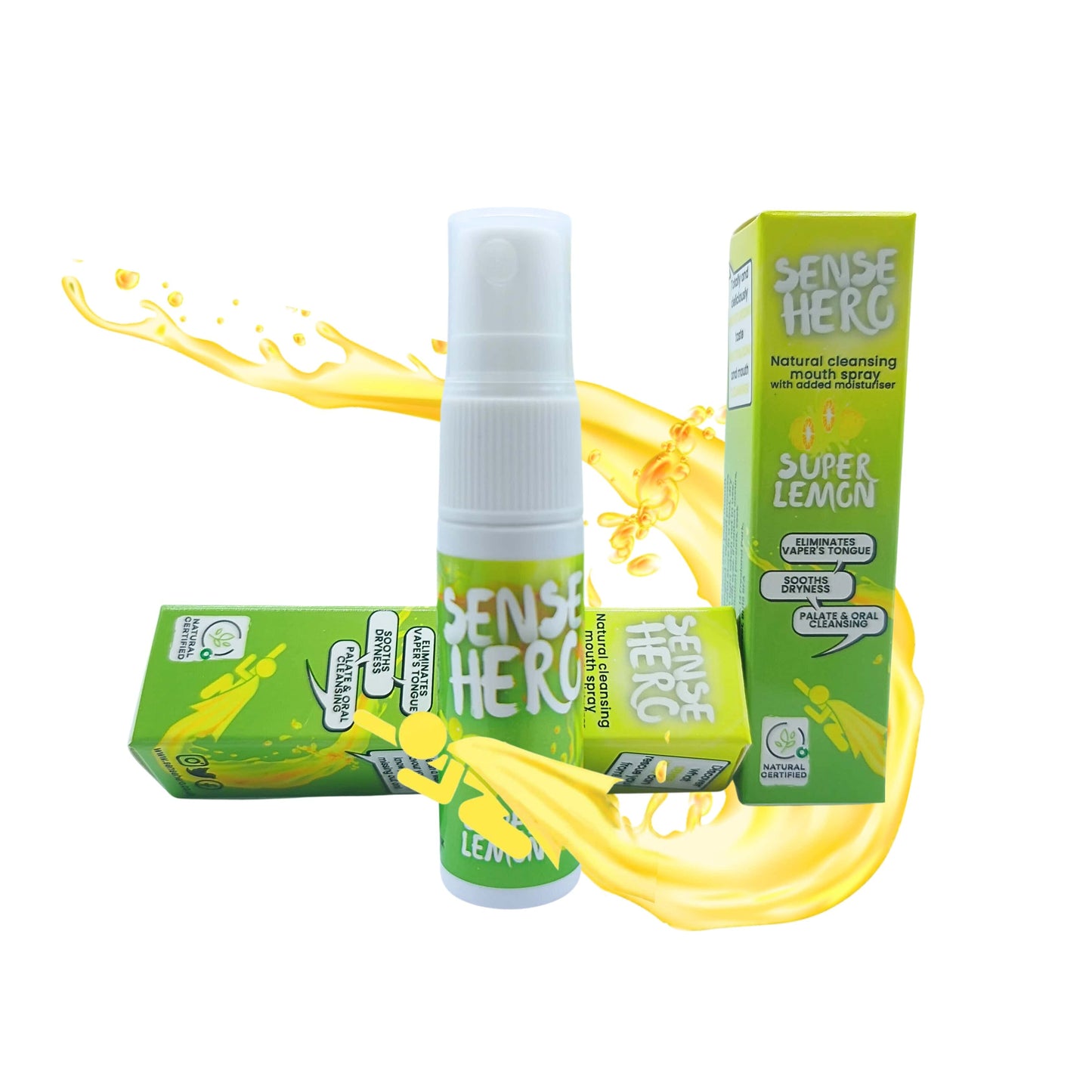
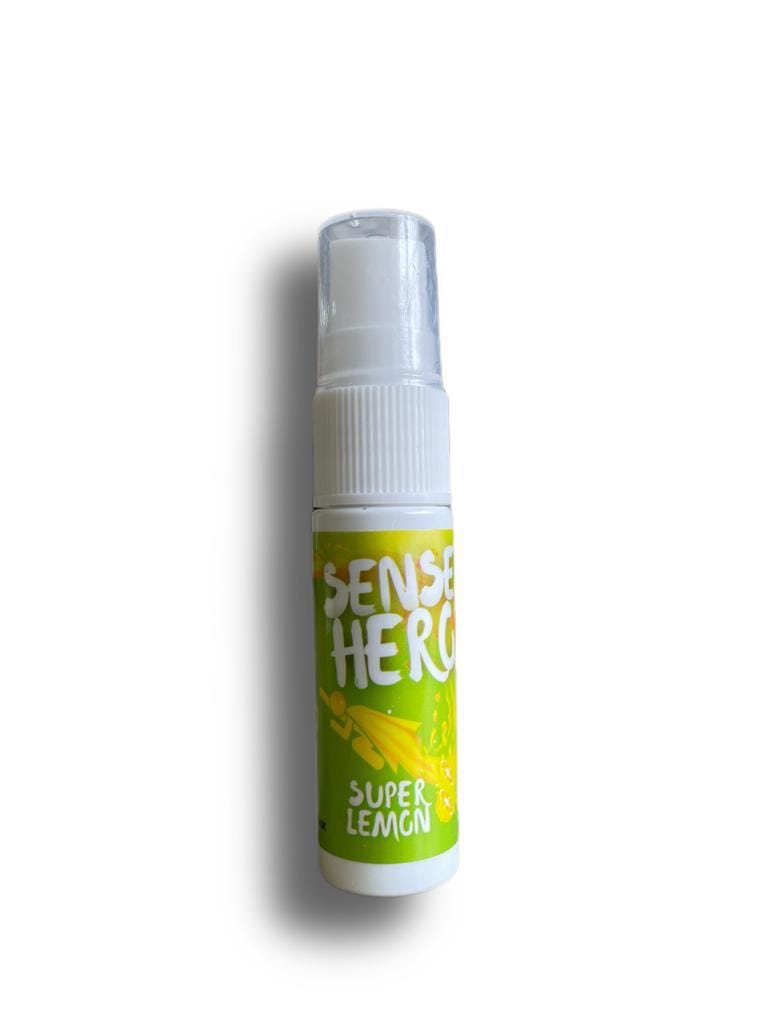
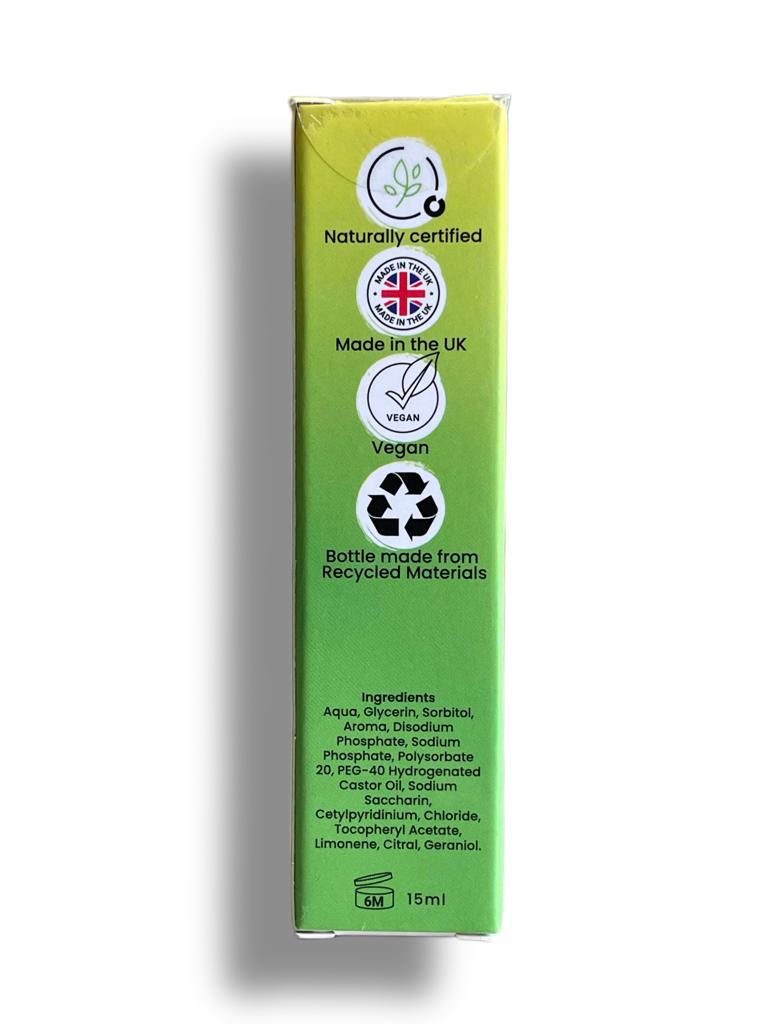

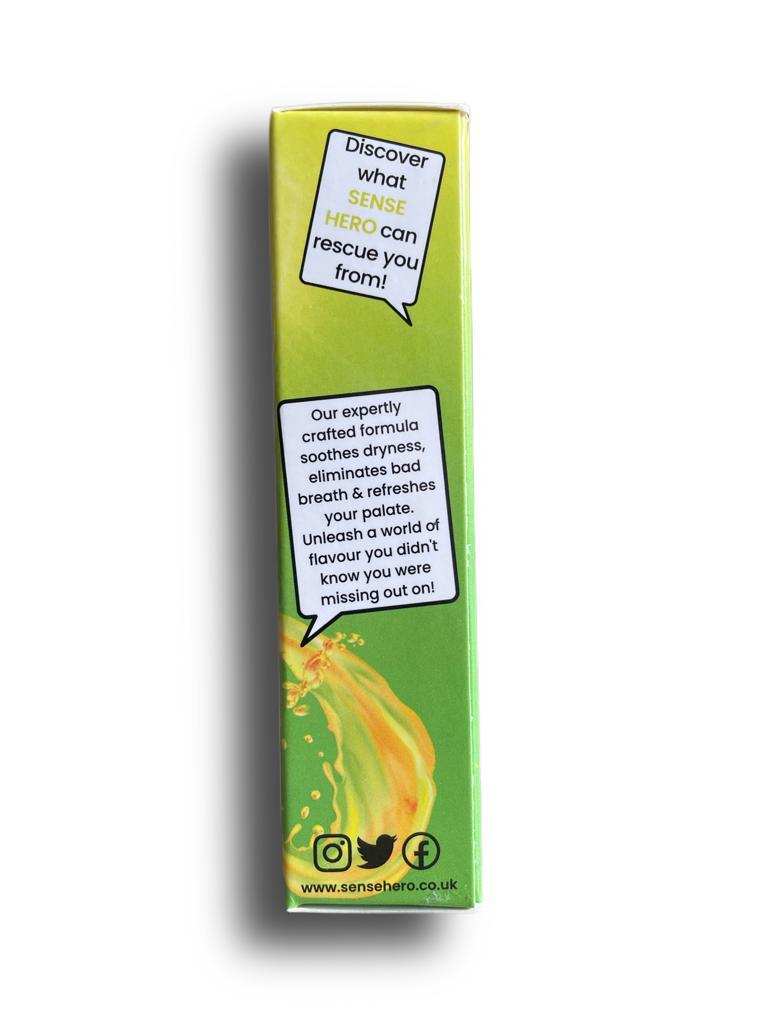
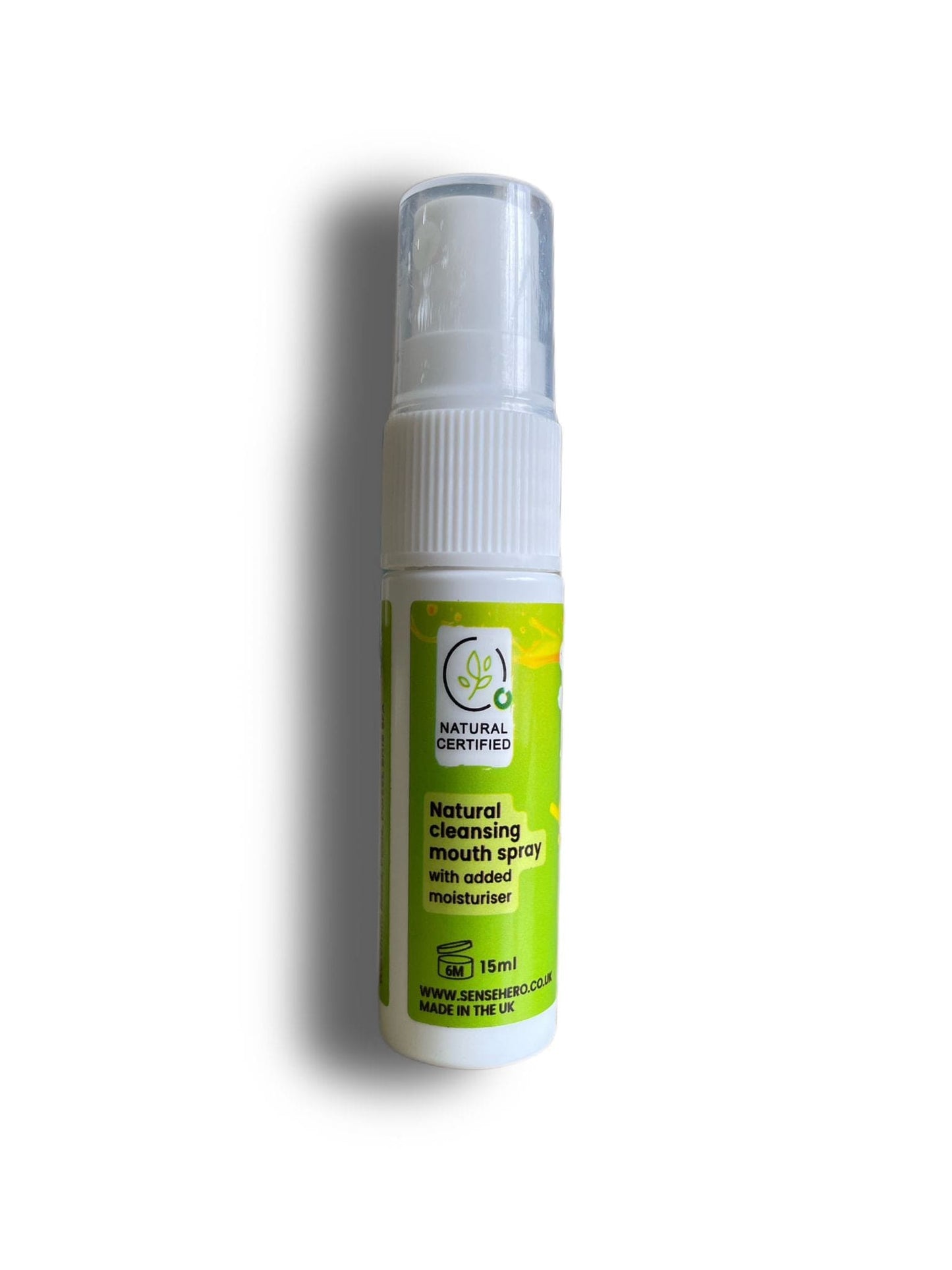

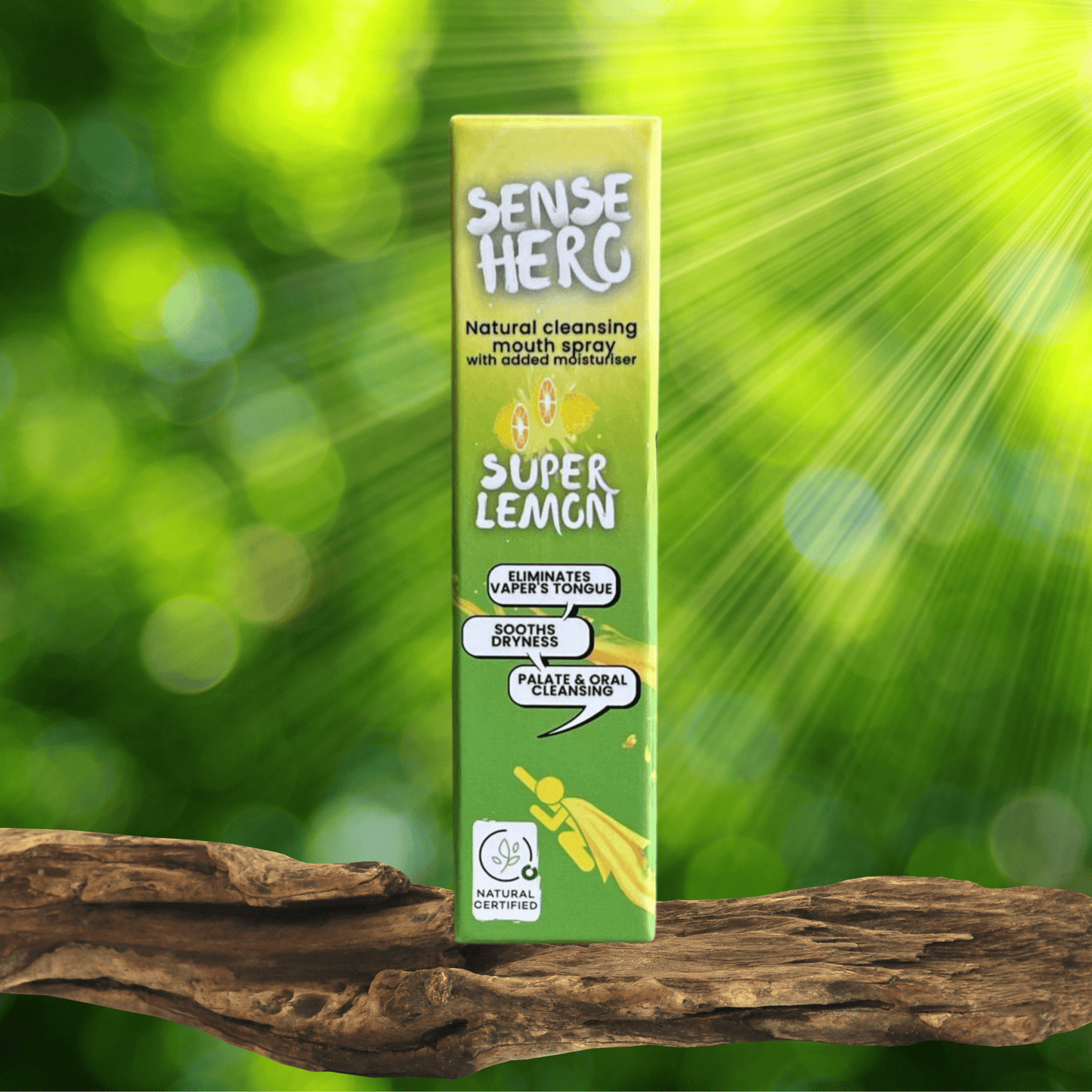
Sense Hero spray is not a medicinal product and is not intended to diagnose, treat, cure, or prevent any disease. Sense Hero Spray is designed for personal comfort.

